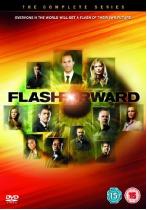Members
Stats
Users Online Users: 0 Users: 0 Guests: 34 Guests: 34 Total: 34 Total: 34 |
Mahanagar, a review by AntaresMahanagar (1963) 95/100 - "Not to have seen the cinema of Satyajit Ray means existing in the world without seeing the sun or the moon." - Akira Kurosawa I guess until today, I've never seen the sun or the moon. This is my first film by Satyajit Ray, and while it's only my first, I have to wonder if my favorite director of all time was right. At around the ten minute mark, there's a scene where Arati, who's in bed with her husband, tells him while he's half sleeping, that she will try to find work to help with the family's financial situation. There's a sense of pride in her eyes, and a new found confidence in her demeanor, that you can't help but want to see her succeed. Then, just a few minutes later, Ray shifts the focus to the other end of the emotional spectrum, to a scene where the son tells the father that his daughter-in-law is getting a job. In the span of a brief few minutes, you see the son's embarrassment when he tells his father the news that Arati has found work, juxtaposing it with the guilt and shame that the father feels for being a burden to the family. What makes this scene so powerful is the subtle way that Ray shoots it. The son is off screen, giving his father the news, all the while admitting to his fault at not being able to provide for the whole family. While the son is talking, the camera stays focused on the father's face as Ray slowly and softly, moves into a close up of the father. As the tears start to trickle down the old man's face, you sense a realization that he and his wife are a burden, and have nothing left to offer this world. The pain is painted across his weathered features and he looks down deflated and defeated. In just a few short scenes, Ray runs the gamut from self-confidence, to guilt, to worthlessness. The film really hits its stride when events transpire that put Arati in the role of sole provider for the family. The anguish that the husband feels, coinciding with a simmering jealousy that's boiling just below his emotional surface. Can his pride survive against the progression of time and its changing social structure? In the end, Arati will make a decision which will show her integrity, but may lead to harder times for the family. A somewhat ambiguous ending, but the whole film is done with such craftsmanship that it's pretty close to a work of art. An amazing film that registers so many emotions, on so many levels. I highly recommend this film. What the color coding means... Teal = Masterpiece Dark Green = Classic or someday will be Lime Green = A good, entertaining film Orange = Average Red = Cinemuck Brown = The color of crap, which this film is (From Antares' Short Summations on April 2nd, 2014) Rubinrot, a review by Tom
Stars:Plot: Gwendolyn Shepherd is actually a very normal 16-year-old teen. What's annoying is that her family definitely has a tad too many secrets. They all have to do with the time-travel gene that is passed down in the family. Everyone is certain that Gwen's cousin Charlotte has the gene, and so everything is all Charlotte, all the time. Until the day Gwen, out of the clear blue sky, suddenly finds herself in London at the end of the 19th century. She knows right away that she, and not Charlotte, was born to be a time traveler - even if she could certainly do without it. Just as she could do without Charlotte's arrogant boyfriend Gideon de Villiers, with whom she now has to forge an alliance in order to clear up the biggest secret of her family history. One thing is clear: she will do everything possible to solve the ancient mysteries. What isn't clear is that one should not fall in love between the times. For that really makes things complicated! Extras:
My Thoughts: I haven't read the books. I didn't know anything about it before going in. I just stumbled across it, because it is a time-travel movie. I enjoyed the first half of the movie, but I got bored with the second half. As it is the first part of a trilogy, there are also still a lot of questions left open. (From Tom's Time-Travel Movie Reviews on December 17th, 2013) Tom's TV Pilots marathon, a review by Tom
Plot: Hold onto your seat as you experience a show like no other. "The ride you are about to take will be worth every minute," raves NewsdayFlashForward fan! FlashForward 1.01 No More Good Days Writer: David S. Goyer (Created By), Brannon Braga (Created By), David S. Goyer (Screenwriter), Brannon Braga (Screenwriter), David S. Goyer (Story By), Brannon Braga (Story By), Robert J. Sawyer (Original Material By) Director: David S. Goyer Cast  (From Tom's TV Pilots marathon on June 14th, 2011) |



 May 19, 2024, 03:58:04 AM
May 19, 2024, 03:58:04 AM



